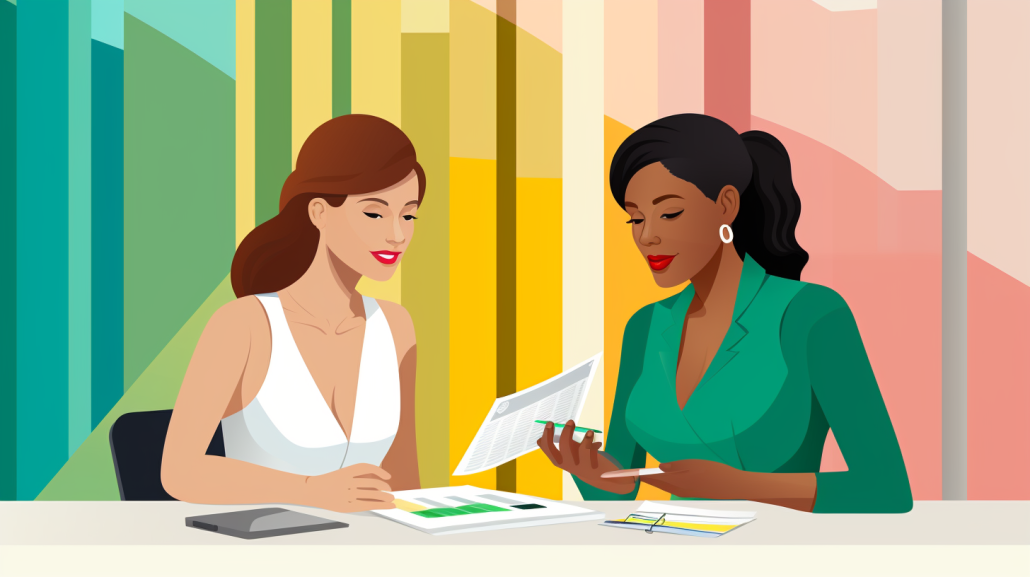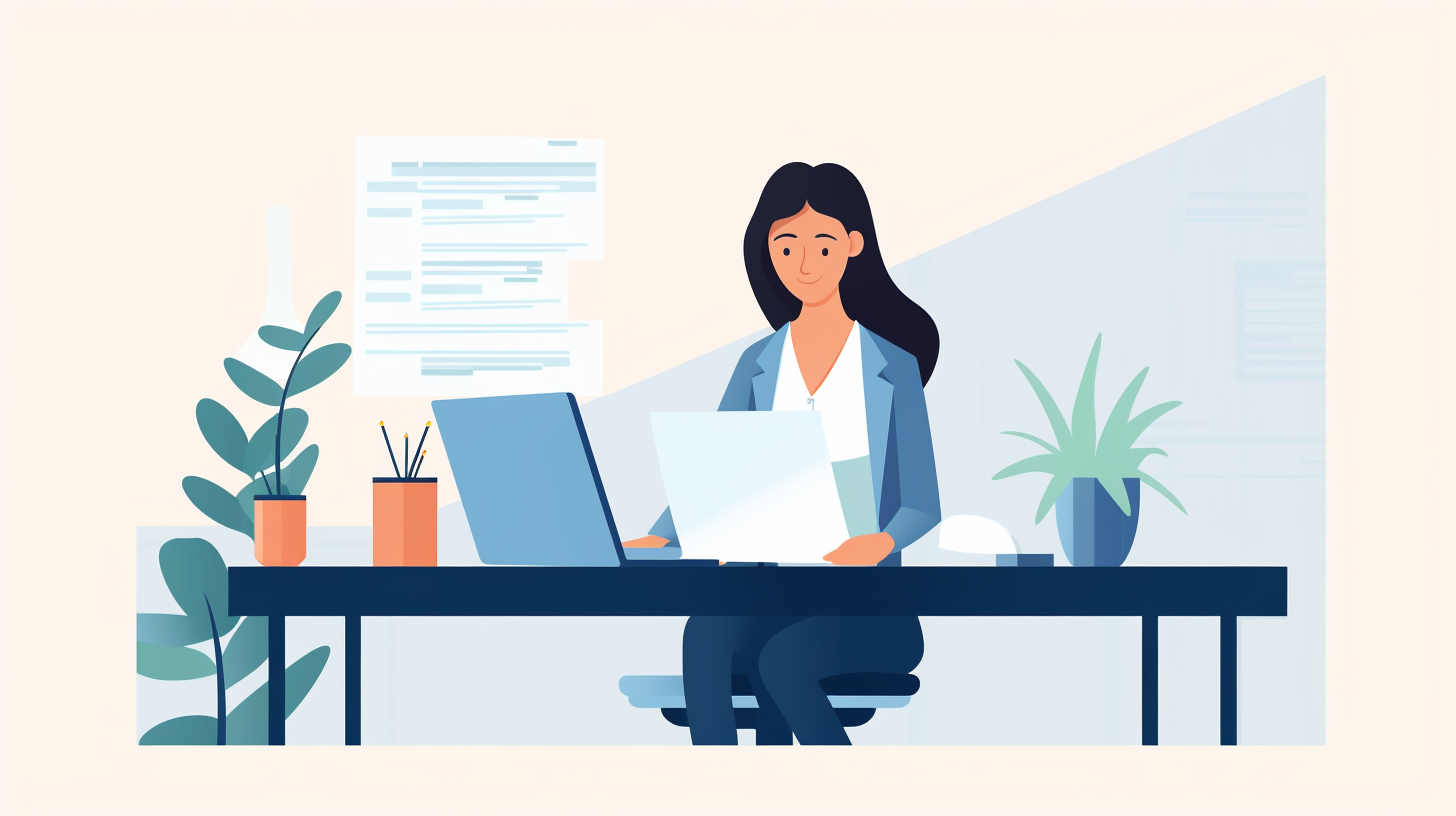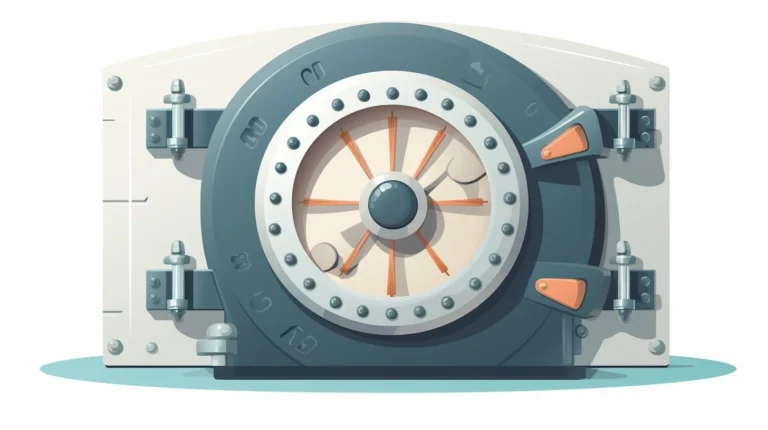What to Do If Your Bank Closes Your Account

Key Takeaways
- If your bank shuts down your account, call them fast. Ask why it happened and how to solve the problem.
- Check with the bank if you can reopen a closed account. They might say yes if you clear any fees or bad checks.
- To stop banks from closing accounts, use them often and keep track of money in them. Avoid big cash moves that scare banks.
- If an account gets closed, find a new one at a different bank. Make sure it fits your needs well before you pick it!
Reasons Why Banks Might Close Your Account
 Your bank can shutter your account for various reasons – it could be due to dormancy, running a zero balance, bouncing checks, suspected identity theft or fraudulent activities. Even factors such as criminal conviction and high-risk occupations might lead to account closures.
Your bank can shutter your account for various reasons – it could be due to dormancy, running a zero balance, bouncing checks, suspected identity theft or fraudulent activities. Even factors such as criminal conviction and high-risk occupations might lead to account closures.Dormant Account
A bank might close your account if you don’t use it for a while. This is what we call a “dormant account“. After three to five years of no activity, banks see this as “abandoned“. Even if there’s money in the account, they can still shut it down. It’s best to check your accounts often and make sure there are transactions happening so they stay active.Zero Balance
Banks don’t like it when your account has zero balance. If your bank account stays empty for too long, the bank might close it. This is not a good surprise! So try to keep some money in your account. If you can’t put money in, talk to your bank right away. You might be able to work out a plan with them so they won’t close your account. But if you don’t take action, one day you could find that you no longer have an active bank account because of zero balance.Bounced Checks or Overdrafts
Banks don’t like bounced checks or overdrafts. Too many can make them close your account. A check bounces if you write it but there’s no money in your account to pay for it. An overdraft is when you spend more than the money that is in your account. You can avoid this by always knowing how much money is in your bank account. Look at it often so you know what’s going on with it. Also, think about getting an account that doesn’t let you go over the amount of money in it (overdraft). This way, even if a bill comes due and there isn’t enough cash, they won’t let the payment go through and then charge you a fee.Suspected Identity Theft
Banks crack down hard on identity theft. If they see odd things happening with your account, they may think it’s not you doing them. This can be anything from a big amount of money leaving your account to someone trying to log in too many times. They will shut down the account for safety. It stops anyone else from using your bank details to steal money or do bad things under your name. You have the right to fight back if this happens and you know it’s a mistake. By filing a complaint, you show the bank that no one is messing with your identity – it was all you after all!Criminal Conviction
If you are found guilty of a crime, your bank can close your account. Banks have rules against illegal actions. These laws help stop money laundering and fraud. This means having criminal convictions can lead to problems with your bank account. Even if the court finds you guilty after you opened the account, your bank may shut it down. They do this to avoid risk and keep finances safe for all customers.High-Risk Occupation
Some jobs can make a bank think you are risky. Jobs such as selling guns, dealing with marijuana, online betting or being an escort are seen as high-risk occupations. The bank may fear that people in these lines of work could lead to illegal activity like money laundering. If your job makes the bank worry about such risks, they might shut down your account. Banks must follow laws under the Bank Secrecy Act (BSA) and USA PATRIOT Act to avoid supporting criminal activities. Activities like terrorism funding and wire fraud could occur through accounts related to high-risk occupations. Banks want to keep away from crime so they close accounts linked with these types of jobs.The Impact of a Closed Bank Account
 Having a closed bank account affects you in many ways. It can make your daily life tough. You might not be able to pay bills or buy things. Also, it may stop you from getting a new bank account at other banks. Some bosses only pay by direct deposit into a bank account. If you don’t have one, this is hard for them and for you too. Plus, checks given to you may bounce back if the account is shut down without warning. Over time, all of these problems can hurt your credit score badly.
Having a closed bank account affects you in many ways. It can make your daily life tough. You might not be able to pay bills or buy things. Also, it may stop you from getting a new bank account at other banks. Some bosses only pay by direct deposit into a bank account. If you don’t have one, this is hard for them and for you too. Plus, checks given to you may bounce back if the account is shut down without warning. Over time, all of these problems can hurt your credit score badly.Immediate Steps to Take When Your Bank Closes Your Account
Your first course of action when your bank closes your account should be contacting the bank to understand why it happened. Don’t feel dejected, instead, dispute any incorrect information and take immediate steps to recover funds or pay off negative balances if needed. But what’s next? What about setting up a new account or retrieving unpaid bills? Stay with us as we walk you through these vital processes with easy-to-follow steps!Contact the Bank
Get in touch with your bank right away. Ask them why they closed your account. It may be due to a zero balance, dormancy or maybe they think there has been identity theft. Also, make sure to ask for the money left in the account after fees are paid off. They should give you this as a check.Dispute Incorrect Information
If your bank says you did something wrong, but you didn’t, speak up. You may dispute wrong data on your ChexSystems report. This can be done by mailing a letter or filling out an online form with correct details. The company must look into the issue and let you know within 30 days. Mistakes do happen sometimes. If so, showing proof of the correct information will help fix things faster. Your bank needs to make sure all the facts are right before closing your account for good. Don’t panic; stay calm and work through it step by step.Pay off Negative Balances
If your bank account shows a negative balance, it’s time to pay it off. This is because banks may close accounts with too many overdrafts or bounced checks. So, if you owe the bank money, they will take what’s theirs from your account before returning any leftover funds to you. To avoid this, always make sure your balance stays in the green. If it goes into the red, pay back what you owe as soon as possible. That keeps things smooth with your bank and protects your credit score too.Recover Your Funds
First, ask your bank to give you the money they owe you. They must do this by law. The money will be less any fees or charges that are due. Normally, they send a check to your last known address. So make sure the bank has your latest details. This is how you get any funds back from a closed account.Opening and Maintaining a New Bank Account
 After sorting the closure of your previous account, it’s crucial to find a new bank that suits your needs. Be sure to set up direct deposits for a smooth transition and ensure all automated bill payments are transferred correctly. Maintaining positive banking habits will prevent unexpected closures in the future.
After sorting the closure of your previous account, it’s crucial to find a new bank that suits your needs. Be sure to set up direct deposits for a smooth transition and ensure all automated bill payments are transferred correctly. Maintaining positive banking habits will prevent unexpected closures in the future.Choosing a New Bank
Picking a different bank needs some work. Start by making a list of what you want. This could be low fees, online banking, or ATM access. Then compare banks to see which one fits your needs the best. Some people like local banks while others prefer credit unions. Be sure to check out the terms and conditions at each bank. You don’t want any bad surprises later on! Choose wisely and move forward with confidence in managing your money better after learning from past experiences.Setting Up Direct Deposits
Direct deposits help keep your money safe and sound. After choosing a new bank, you need to do this next. You will have to get information from your bank first. This includes the routing number and the account number. Then, tell your employer or benefits provider about these details. A direct deposit form may also be needed – fill it out with care! Now, you can sit back and watch as paychecks land in your account each pay day like clockwork. It’s simple! In time, with regular cash flow into the account, there is less risk of closure by banks due to lack of funds or activity.Transferring Automated Bills
Here’s what to do with automated bills. First, gather a list of all your automatic payments. These can be for things like phone bills or gym memberships. You also need to know about any checks you haven’t cashed yet. Once this is done, open a new bank account and move the money there. Change the payment details on all automatic bill systems so they use your new account instead of old one that got closed down by the bank. Finally, keep track of your talks with the bank in paper form just in case you need it later.Can You Reopen a Closed Bank Account?
 Sure, reopening a closed bank account can be possible. But it depends on different things. – First, get in touch with the bank quickly. If they closed your account by mistake or for small reasons, they might let you open it again. – Check if you owe any money to the bank. They may ask you to pay off negative balances or fees before reopening. – Sometimes, banks close accounts due to bad checks, too many overdrafts or fraud. In these cases, re-opening could be tough. – If your account was closed for long inactivity or zero balance, there’s a chance to reopen. But remember: Each bank has its own rules for this. Just know that some banks won’t allow it at all. When this happens, look into opening a new account with them or try another bank next time around!
Sure, reopening a closed bank account can be possible. But it depends on different things. – First, get in touch with the bank quickly. If they closed your account by mistake or for small reasons, they might let you open it again. – Check if you owe any money to the bank. They may ask you to pay off negative balances or fees before reopening. – Sometimes, banks close accounts due to bad checks, too many overdrafts or fraud. In these cases, re-opening could be tough. – If your account was closed for long inactivity or zero balance, there’s a chance to reopen. But remember: Each bank has its own rules for this. Just know that some banks won’t allow it at all. When this happens, look into opening a new account with them or try another bank next time around!How to Prevent Your Bank from Closing Your Account
There are a few things you can do to keep your bank from closing your account. Use your account often. Banks don’t like accounts that sit empty or aren’t used for a long time. Make sure you know all the rules of the bank. Follow them closely. Keep track of how much money is in your account at all times. This way, you won’t spend more than what’s there and get hit with overdraft fees, which banks don’t like either! Be careful about making big cash deposits or taking out lots of money at once. as this can look funny to banks. Finally, spread out your money if you have a lot of it.– put some in different types of accounts or even different banks so not everything gets lost if one bank shuts down an account.What Steps Should I Take to Resolve a Banking Dispute?
When faced with handling banking disputes, there are important steps to follow. Begin by gathering evidence such as bank statements, receipts, and correspondence. Communicate your concerns in writing to the bank, highlighting the issue clearly. If the bank’s response is unsatisfactory, escalate the matter by contacting regulatory authorities or ombudsman services. Seeking legal advice may also be advisable in complex cases.
Conclusion
 Facing a bank account closure can be tough. But, you are not alone in this. Find out why it happened and solve that problem. Next time, make sure to follow rules so your new bank won’t close your account too.
Facing a bank account closure can be tough. But, you are not alone in this. Find out why it happened and solve that problem. Next time, make sure to follow rules so your new bank won’t close your account too.





